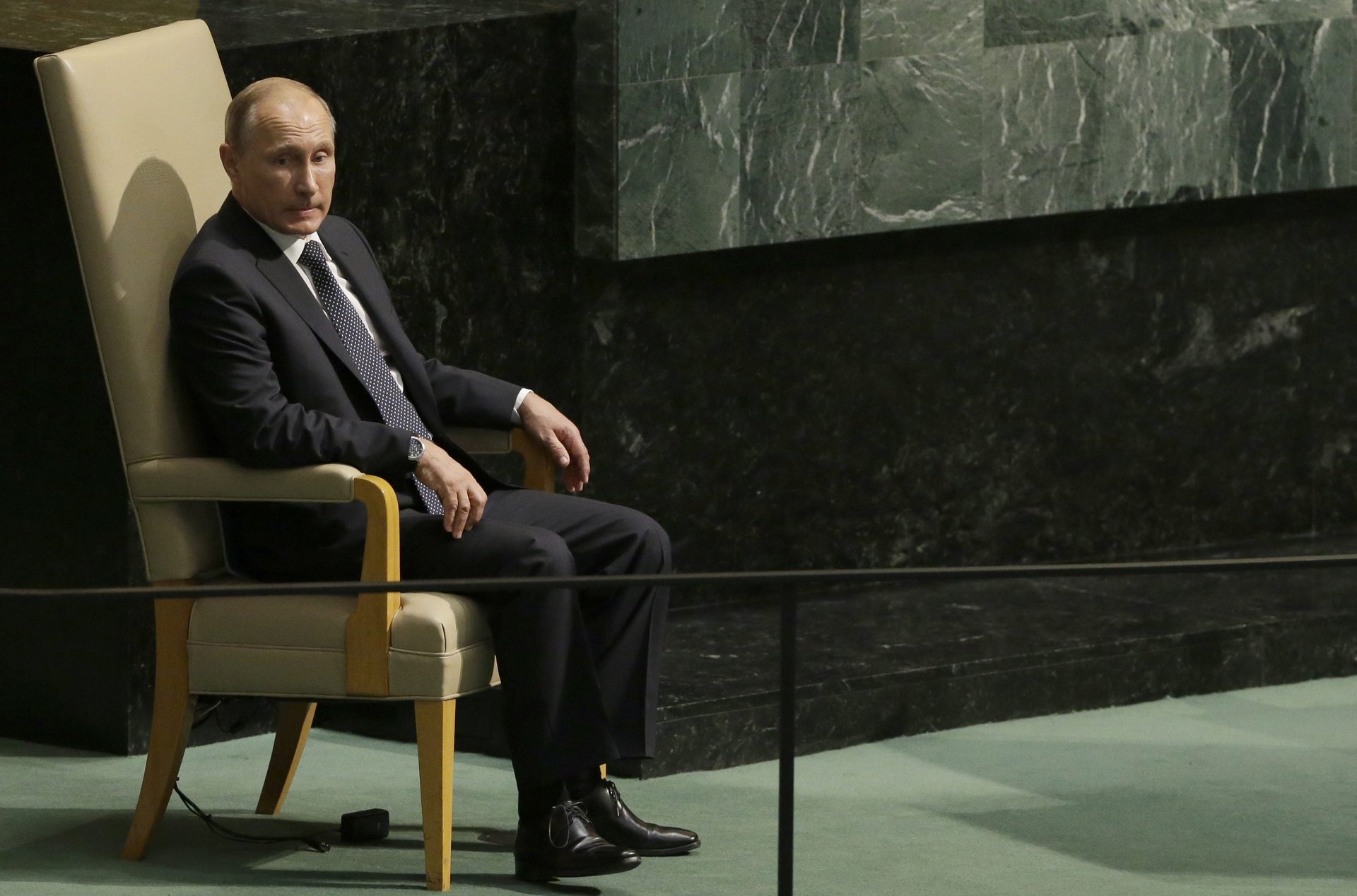Barack Obama is racing against the clock to probe evidence of Russia corrupting the presidential election
President Barack Obama seems to fear that president-elect Donald Trump will ignore US intelligence that Russia used cyber tools to influence the result of the Nov. 8 election. And with good reason: Trump has displayed intense skepticism of what US intelligence agencies regard as a profound risk to the American electoral system.


President Barack Obama seems to fear that president-elect Donald Trump will ignore US intelligence that Russia used cyber tools to influence the result of the Nov. 8 election. And with good reason: Trump has displayed intense skepticism of what US intelligence agencies regard as a profound risk to the American electoral system.
So Obama is attempting to box Trump in politically—ordering a definitive report on Russia’s cyber-intrusions before he leaves office in six weeks.
In a new briefing to key members of Congress last week, the CIA advanced its long-held conclusion that Russia conducted cyber-intrusions and disseminated fake news in order to disrupt the presidential election. In its latest assessment, the CIA said the attacks were not intended solely to disrupt the election, but specifically to skew it to Trump’s advantage, according to the Washington Post. The newspaper quotes a US official who was in the congressional briefing as saying “It is the assessment of the intelligence community that Russia’s goal here was to favor one candidate over the other, to help Trump get elected.”
The CIA assessment aligns with the discovery of similar cyber-attacks across Europe, including the hacking of sensitive servers, as well as information warfare. In recent days, intelligence officials in both the UK and Germany have said that Russia’s cyber warfare imperils their respective democracies. On Dec. 10, Nicholas Burns, one of the most respected former diplomats in the US, tweeted that the threat is sweeping.
Trump’s team, however, has brushed off the new reports as the work of a tarnished intelligence community. “These are the same people that said Saddam Hussein had weapons of mass destruction. The election ended a long time ago in one of the biggest Electoral College victories in history. It’s now time to move on and ‘Make America Great Again,’” the statement read.
In an interview with Time magazine, Trump had voiced similar sarcasm about the cyberattacks. “It could be Russia. And it could be China. And it could be some guy in his home in New Jersey,” he said. “I believe that it could have been Russia and it could have been any one of many other people. Sources or even individuals.”
Hence Obama’s worry. Broadly speaking, Trump is setting an early trend of treating information he doesn’t like as politicization. For instance, his transition team has suggested that the Energy Information Administration, the much-respected data division of the US Department of Energy, is politicizing its data to support Obama’s climate change agenda. And he is accusing the 17 US intelligence agencies—one of the baselines of US foreign policy—of doctoring the hacking analysis to tarnish him and his presidency. The mindset suggests another dimension to Trump’s penchant for operating in an alternate universe of facts.
With that as the backdrop, Obama is racing against the clock to get the facts on Russia out there prior to Trump’s inauguration.
There is bipartisan support in Congress for action against Russia. In separate statements, Republican senator Lindsey Graham and Democratic leader Chuck Schumer both called for investigations into the hacking. “I am going to lead the charge to investigate Russia’s role, not only in the elections but throughout the world,” Graham said. “So I’m going after Russia in every way we can go after Russia. I think they’re one of the most destabilizing influences on the world stage. I think they did interfere with our elections, and I want Putin personally to pay a price.”
In terms of that price, the US has what experts call the most sophisticated offensive cyber capabilities in the world, and it could easily retaliate. The question always has been how, since no one wants to initiate an escalating tit-for-tat cyber war that could easily get out of hand. One of the most powerful US messages, for example, could be taking out a piece of the Russian electric grid; but Russia presumably is armed with similar capability and could do the same thing. In which case, what does the US do next?
Until now, Obama has seemed reluctant to act without bipartisan support in the form of consensus from the Republican-controlled Congress. In September, White House homeland security and counterterrorism adviser Lisa Monaco, plus FBI director James Comey, and cabinet secretary of homeland security Jeh Johnson, met with 12 Senate leaders of both parties to brief them on the election hacking. Senate Republican leader Mitch McConnell responded by casting doubt on the intelligence, and pushed back against any public rebuke of Russia. He said he would view that as not factual, but a partisan message from the Democratic party.
With a Republican in the White House and the war over with Obama, however, McConnell and other Republican congressional leaders could look at the intelligence differently. But Trump, who has publicly expressed admiration for and a desire to get along with Putin, could be a different story. Obama certainly appears to be preparing for the possibility that Trump would ignore any evidence of Russian meddling.